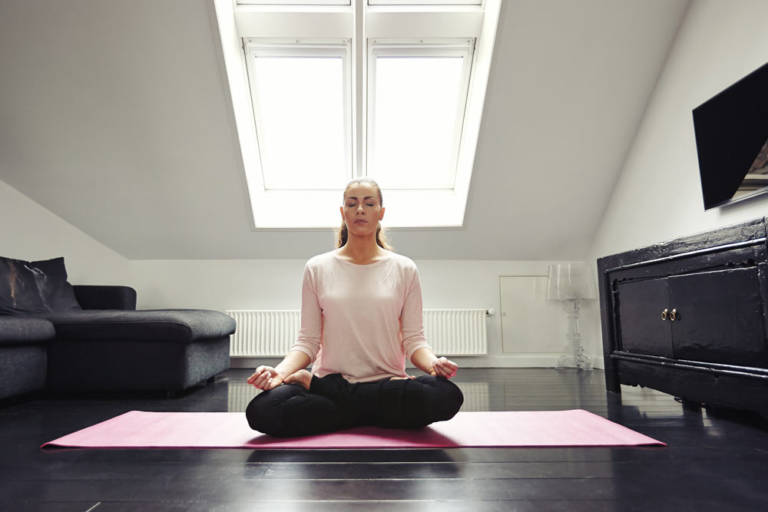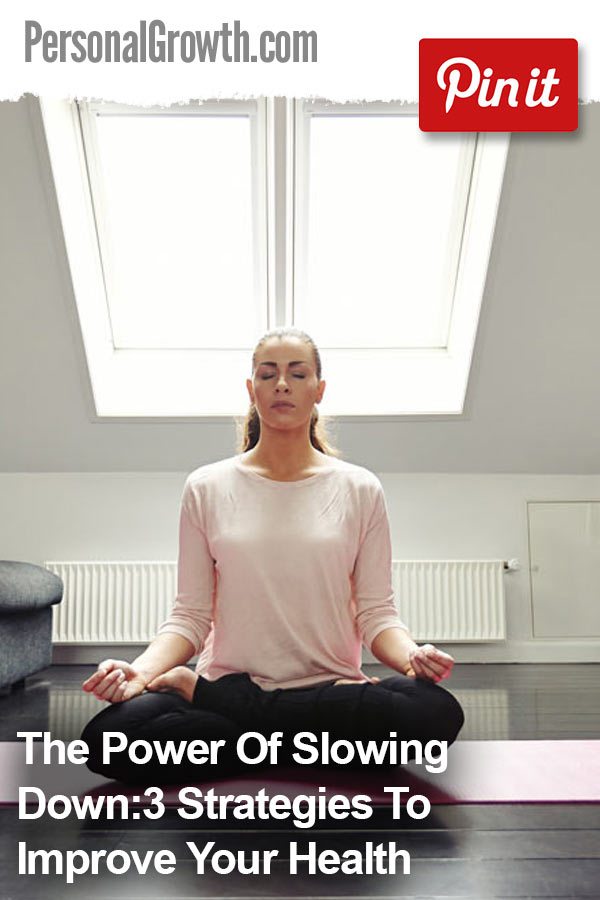

We live in a fast-paced modern world, and sometimes it feels like the pace of life is only getting faster! It can be easy to feel overwhelmed by the daily to-do list, responsibilities, and the incoming stream of information that things like the media and internet create for us.
For most of us, this leads to living in a chronic state of stress. Yet despite the fact that the pace of life is faster than it has ever been in history, it is crucial to prioritize slowing down and being more mindful in our lives, because doing so is crucial to our health and well-being.
When we are in “go mode” all of the time, we are often relying upon the sympathetic branch of our nervous system, which is driven by stress hormones like cortisol and adrenaline. Cortisol has been shown to interfere with learning and memory functions, lower immune function, reduce bone density, and increase weight gain, high blood pressure, cholesterol and heart disease.
If we never switch out of this stressful “go, go, go” type of approach to life, we never switch into our parasympathetic nervous system, which is responsible for relaxation, rest and digestion. Without our time spent in parasympathetic mode, we are likely to develop a wide range of health issues and feel continually overwhelmed and stressed out.
To help you begin to learn how to slow down and re-balance your nervous system, here are three simple strategies that you can use on a regular basis.
1. Take Time To Breathe Deeply
Our breath is one of the functions that is both under voluntary and involuntary control. It is fortunate for many of us that involuntary control exists, because most people don’t pay attention to their breathing on a daily basis. Many of us have become habituated to breathing in a rapid, shallow fashion or to holding our breath.
When we take time to become mindful of our breath, we can begin to help switch our nervous systems out of fight-or-flight mode and into the rest-and-digest mode. By breathing into the very bottom portions of our lungs, we help to directly stimulate the parasympathetic nervous system and bring about a relaxation response in the body.
To begin working with deep breathing, set aside five to ten minutes each day to spend focusing on breathing. It can be helpful in the beginning to lie down, place a hand on the belly and focus on gently making the hand rise with an inhalation, then allowing the hand to fall with an exhalation.
Counting to a slow pace of three or four with each inhale, and again with each exhale, can help slow down the pace of the breath. The more deep breathing is practiced on a consistent basis, the easier it becomes.
2. Begin To Engage More With The 5 Senses
How many times do we get to the end of each day and realize that the day feels like a big blur? For many of us, part of this has to do with not being mindful of the world around us and engaging all of our senses.
Paying attention and engaging the senses is another powerful technique in training oneself to slow down and become more mindful.
Here are a few ideas to play with to help get you started:
• When you eat your meals, turn off the TV, don’t look at your phone, or read. Be totally present with the food in front of you. Enjoy the smell of it, savor the taste of it, feel the texture in your mouth, chew it more thoroughly and be mindful of your enjoyment of what you are eating.
• Take a slow walk in nature and really observe your surroundings. Notice the sounds you hear, the colors you see, the smells in the air, even try and engage the sense of touch and taste in a creative way.
• When taking a shower, try to slow down and be fully present to the experience, rather than simply rushing through it as another task to complete. How does the water feel on your skin? What scents do you smell? How does your body feel?
These are just a few ways to start exploring a path to slowing down and really engaging more with all five senses. Be creative and come up with your own ideas.
3. Challenge Yourself To Stay Present When Doing Daily Tasks
This technique builds off of the last one, as staying present often requires paying attention to the senses.
Rather than mindlessly washing the dishes, try and stay present with the task and notice the process and what you observe. You might even notice how the mind jumps in with judgment about the task being “boring” and simply observe that.
Rather than mindlessly driving to work, challenge yourself to notice things that you have not seen before on your drive, or perhaps take a new route entirely.
Notice what starts to shift and change for you when you are more present and mindful of the day to day routine, and slow down in that process. Do you feel calmer and more relaxed when you complete your work or home tasks, than when you rush through them to get them done?
These are just three simple strategies to begin to slow down and become more mindful in life. Be creative and come with your own strategies as well. The more you learn to slow down and be present, the more likely you will end your day feeling calmer and more relaxed.

